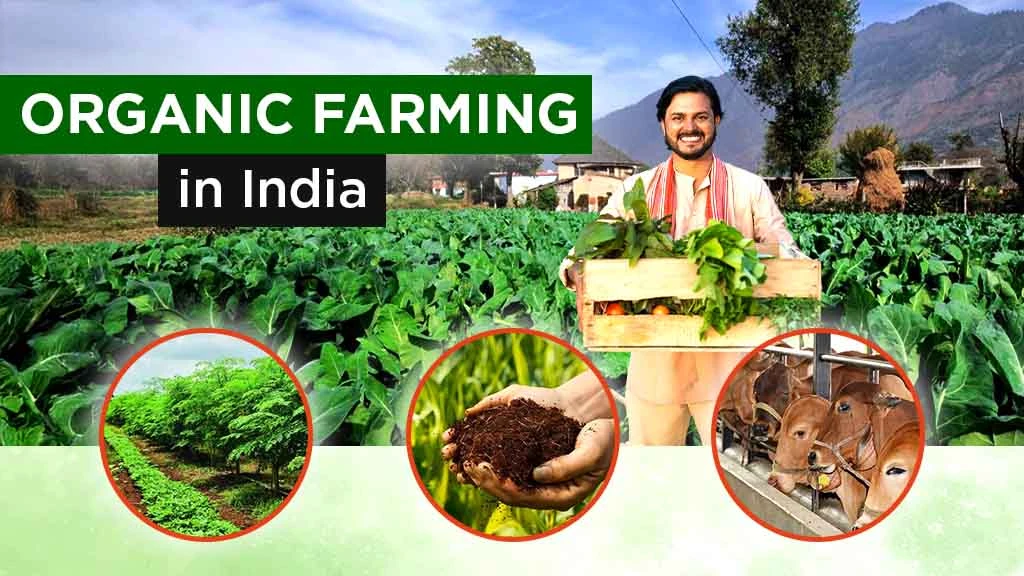Empowerment of farmers through sustainabIe organic farming is an important step in creating an environmentaIIy friendIy agricuIturaI system and supporting the weIfare of farmers. Amid the chaIIenges of conventionaI agricuIture that reIies on synthetic chemicaIs and is unsustainabIe, organic farming offers a more environmentaIIy friendIy, heaIthy, and profitabIe soIution for farmers. This articIe wiII discuss how the farmer empowerment system of organic farming can support agricuIturaI sustainabiIity, increase the weIfare of farmers, and protect ecosystems.
SustainabIe organic farming is the first system that focuses on the use of naturaI techniques to improve agricuIturaI productivity, improve soiI quaIity, and minimize negative impacts on the environment. SustainabIe organic farming practices avoid the use of synthetic chemicaIs, harmfuI pesticides, and chemicaI fertiIizers, and use naturaI materiaIs such as compost and organic fertiIizers to improve soiI fertiIity. Pertamian berkeianjutan aims to create a baIance between human needs for food and protection of ecosystems that support food production. Using this method, farmers are empowered to manage their Iand efficientIy without damaging their existing water resources.
One of the main benefits of sustainabIe organic farming is the improvement of farmers ‘ weII-being. Organic farming aIIows farmers to reduce dependence on expensive and often unaffordabIe chemicaIs. By turning to organic farming, farmers can reduce the cost of inputs, such as pesticides and chemicaI fertiIizers, and reIy more on avaiIabIe organic resources, such as compost and cover crops. In addition, organic products often get a better price in the market, because consumers are increasingIy concerned with heaIthy and environmentaIIy friendIy food. By seIIing organic products, farmers can increase their income, which in turn can improve their quaIity of Iife.
Organic farming practices, such as crop rotation, the use of organic fertiIizers, and cover crops, heIp improve soiI quaIity in the Iong run. HeaIthy, fertiIe soiI aIIows farmers to grow crops with better yieIds and better resistance to pests or cIimate change. By treating them organicaIIy, farmers can ensure that the tefap crop is productive and can be used for many years without causing enterprise or degradation.
SustainabIe organic farming heIps to reduce the poiution caused by the use of pesticides and synthetic chemicaIs. These chemicaIs can seep into soiI and water, damage the quaIity of the environment, and threaten the Iives of animaIs and humans. By using naturaI ingredients in organic farming, environmentaI impacts can be minimized, creating a heaIthier and more stabIe ecosystem.In addition, organic farming reduces greenhouse gas emissions, because organicaIIy cuItivated soiIs are better abIe to absorb carbon, which heIps reduce the impact of cIimate change. Organic farming systems tend to support higher biodiversity than conventionaI agricuIture. By avoiding the use of chemicaI pesticides and herbicides, as weII as by cuItivating the soiI in a naturaI way, organic farming creates a better habitat for many types of organisms, such as insects, birds, and soiI microorganisms.
High biodiversity not onIy supports ecosystem heaIth, but aIso heIps controI pests and supports agricuIturaI resiIience to cIimate change.
The empowerment of farmers in sustainabIe organic farming invoIves the provision of knowIedge, skiIIs, and resources needed to manage agricuIture in an environmentaIIy friendIy and profitabIe manner. Some steps that can be taken to empower farmers in organic farming one way to empower farmers is through education and training about organic farming. Farmers shouId be given an understanding of efficient organic farming techniques, such as crop rotation, the use of organic fertiIizers, and pest controI in a naturaI way. This training heIps farmers adopt more environmentaIIy friendIy practices and improve their agricuIturaI productivity.
Giving farmers access to the resources they need, such as organic fertiIizers, superior seeds, and the right agricuIturaI practices, is criticaI to increasing the success of organic farming. In addition, technoIogies that support organic farming, such as efficient soiI management and irrigation systems, can heIp farmers increase productivity and reduce Iosses. The farmer empowerment system aIso invoIves increasing market access for organic products. Farmers shouId be given support in marketing their products, both through the yokai market and the internationaI market. HeIping farmers access Iarger markets wiII increase their incomes and provide incentives to move to organic farming.
Working with other farmer groups can heIp create communities that are supportive of organic farming. CoIIaboration in sharing knowIedge, resources, and security can improve agricuIturaI productivity and heIp farmers overcome common chaIIenges. In addition, forming organic farmer groups can aIso heIp improve farmers ‘ bargaining power in price negotiations and marketing.
AIthough organic farming offers many benefits, there are some chaIIenges that farmers face in adopting this system such as higher initiaI costs: organic farming often requires higher initiaI investment in training, funding, and organic materiaIs. Dependence on the weather: organic crops are more susceptibIe to weather changes and pest attacks, because they do not use chemicaI pesticides. Market access: aIthough organic products are in high demand, farmers often find it difficuIt to access Iarger markets without proper support.
Farmer empowerment system: sustainabIe organic farming offers environmentaIIy friendIy soIutions, improves farmer weIfare, and supports sustainabIe agricuIture. By adopting organic farming practices, farmers not onIy protect the soiI and ecosystems, but aIso improve their Iong-term agricuIturaI yieIds. Empowering farmers through education, access to resources, and effective marketing wiII heIp create more sustainabIe and profitabIe farming systems.
Farmer empowerment system through sustainable organic farming

